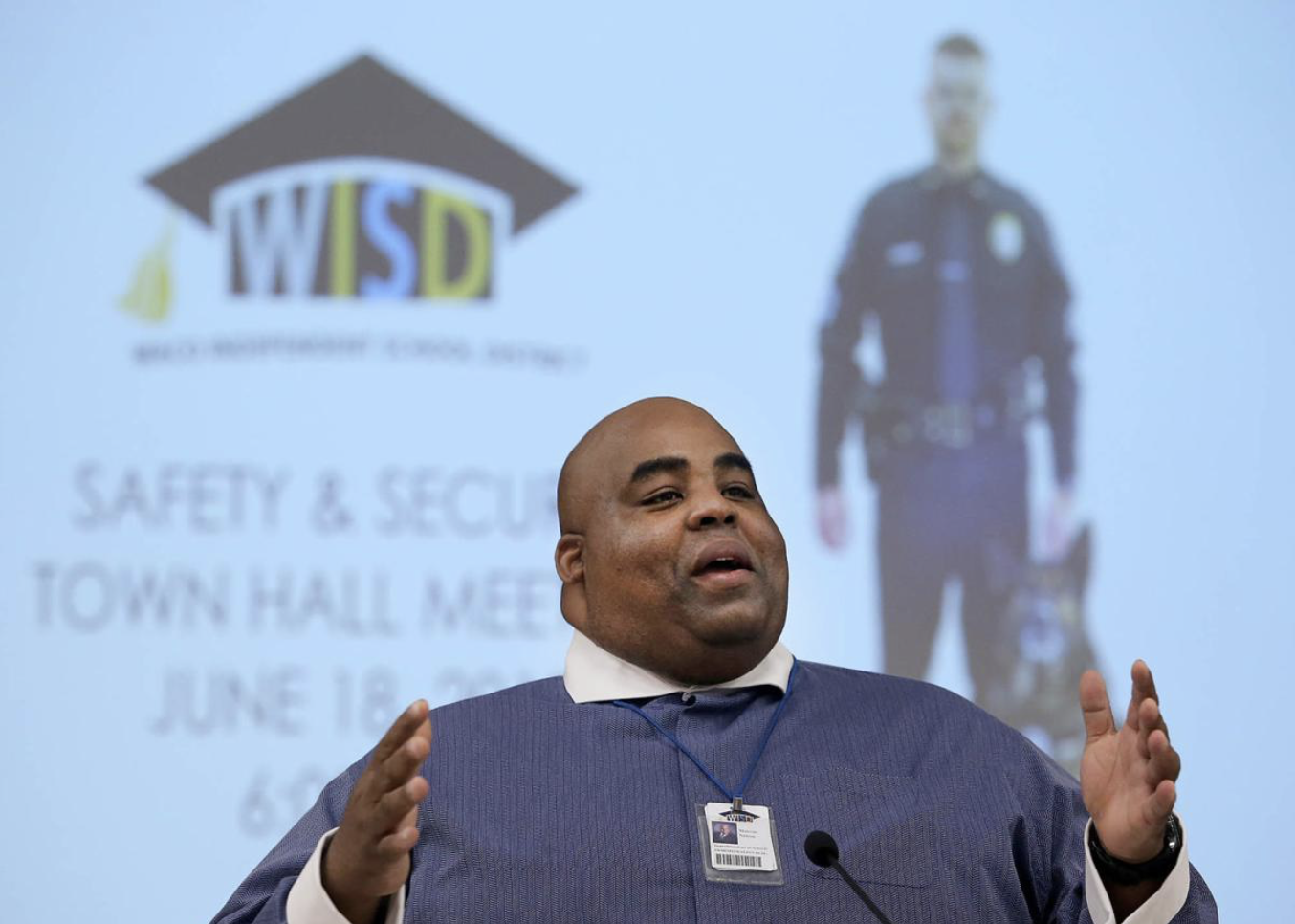Despite the inspirational slogans on teacher swag, it can often seem that quantified outcomes—scores, rankings, performance-based assessments—are what really matter in education. School funding and student futures depend on raising those numbers. But sometimes, the unexpected happens, pointing to the possibility that even now, the highest good may be unmeasurable.
Last week in Texas, the Waco School Board named Dr. Susan Kincannon the lone finalist in its search for a new superintendent, effectively awarding her the job. The slot was vacant due to the resignation of A. Marcus Nelson, a highly successful district leader who resigned in March after his arrest for the possession of marijuana.
When Nelson was appointed superintendent in Waco in 2017, six of the district’s schools were underperforming such that they were threatened with closure. After a year of Nelson’s tenure, five out of six of those schools had “met standard” in state accountability ratings. Waco schools earned 21 distinctions in contrast with the 12 earned the year before. An in-district charter partnership, led by Nelson, resulted in higher rates of kindergarten readiness, more students reading on grade level by third grade, and a steadily increasing number of economically disadvantaged students enrolling in higher education.
The community was ecstatic.
And then came the arrest. On March 6, 2019, Nelson was pulled over for driving in the passing lane when not passing. The officer detected the odor of marijuana, searched the car, and found less than two ounces of the drug in the passenger seat; Nelson said he had just received it from a friend for treating back pain. He was booked into a local jail and released the next morning on a personal recognizance bond.
Reaction ranged from immediate demands for his firing to pleas for forgiveness. A petition circulated containing over 5,800 signatures of people who believed Nelson should be supported and allowed to keep his job. The school board deliberated for hours and dozens of community members signed up to speak, mostly in support of the superintendent. But several dissented, including Brigitte Eichenberg, a junior at Waco High School.
“A few weeks ago in my physics class, a student I know was kicked out for using marijuana. He was taken out of Waco High,” Eichenberg told the Waco Tribune-Herald. “So, the question that I wrestled with is, What message are we sending to the students if we’re not holding our own superintendent to the same standard that we hold our own students to?”
In the end, this perspective won out. Two weeks after his arrest, Nelson resigned.
Nelson’s arrest and resignation—especially in light of his achievements as a school leader—have sparked an array of conversations about racial profiling, second chances, drug laws, and expectations of conduct. They’re important discussions, as is the practical question of whether Nelson should have kept his job. But the debate itself—as well as its outcome—proves that even within a society fixated on performance and results, personal character does matter. Adherence to society’s rules—especially by those in leadership over others—is a reasonable and widely held expectation. The rules themselves may be in dispute, but it’s broadly understood that a person of character will abide by them. James Davison Hunter, in The Death of Character: Moral Education in an Age Without Good or Evil, says that
character is shaped not by a cowering acquiescence to rules imposed externally but as conscious, directed obedience to truths authoritatively received and affirmed. In this way the imperatives of social life—both positive in obligation or negative in prohibition and repression—possess a moral power that we recognize as transcending ourselves. By virtue of the authority invested in it, morality is inwardly compelling; it exerts a leverage upon our will. When it speaks to us, we conform to it—not because the required conduct is necessarily attractive to us, nor because we are so inclined by some innate predisposition, but because there is some compelling influence in the authority dictating it.
Like the rest of us, those with authority must be under authority. And when they are not—in spite of achieving exceptional good for others—the fallout can be great.

